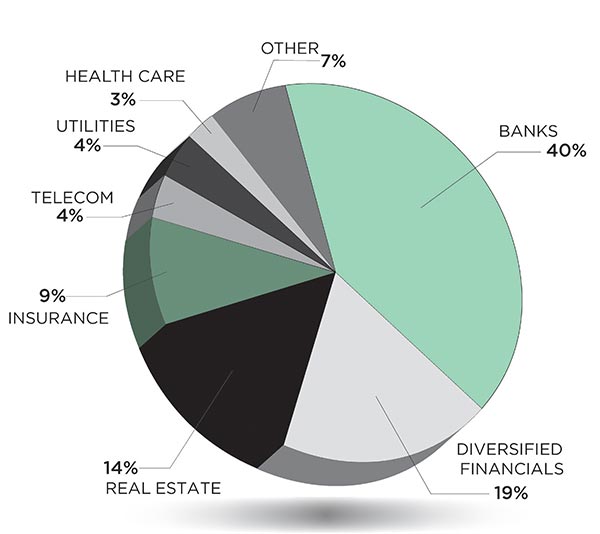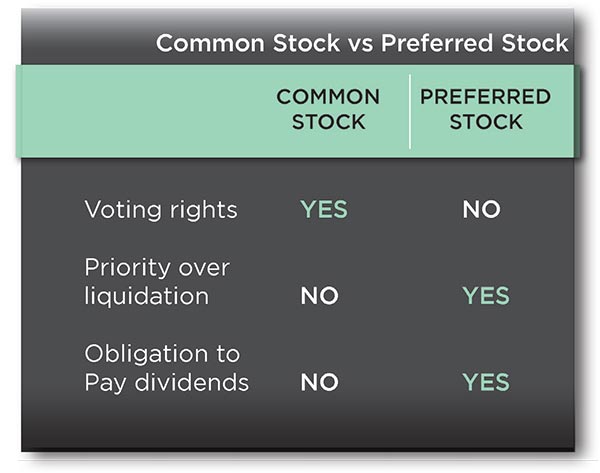
There’s something about the word ‘preferred’ that puts a smile on your face. It conjures
up images of better treatment, faster service, and lower rates. It’s the antithesis of the
ordinary, everyday, common experience.
But is that the case if you’re an investor? Should preferred stock get an allocation in your equity portfolio?
In some ways, preferred stock resembles common stock. For example, both types give you an ownership stake
in the issuing corporation and the right to share in its profits. And you can sell both preferred and common
stock in the secondary market whenever you please.
But the differences between the two vehicles are more striking than their similarities. Preferred stocks were
not on the radar of most investors until just a few years ago. When bond yields began to fall, investors started
to hunt for yields in other places, thus discovered preferred stocks.
But what exactly are preferred stocks? What advantages do they offer investors? And why do they belong in
your portfolio?
The big attraction of preferred stocks is their dividend yield. Most pay above 5% annually, and can pay 8% or
more. As a result, some trade above the par value at which they were originally issued, because investors are
willing to pay a bit more than par to obtain the higher yield.
Most preferred stock provides regular income in the form of a dividend, which must be paid before any
dividends are disbursed on the corporation’s common stock. The dividend is not linked to the company’s
profitability the way common stock dividends are, so the amount is usually fixed at issue, hence does not
increase or decrease later.
In some cases, the corporation may issue participating preferred shares. In this case, preferred shareholders
receive an additional payment if the dividend on its common shares is more than the preferred dividend.
Equally important, if the corporation cannot pay preferred dividends on schedule, they usually accrue until
the company is once again able to pay them. Not
so with common stock dividends, which may be
cut or eliminated if the issuing company is having
financial problems or decides to use its profits in
other ways.
When it comes to tax treatment, however, common
stock has the advantage, because its dividends
are usually taxed at your long-term capital gains
rate: 15% maximum. By contrast, most preferred
stock dividends are taxed at your regular ordinary
income rate.
Unlike investors who own common stock, holders
of preferred stock usually do not have voting rights.
In fact, one reason why privately held corporations
sometimes choose to raise capital with preferred
rather than common stock is to avoid giving
shareholders any say on matters of corporate
governance
IS NOW THE TIME FOR PREFERRED STOCKS?
Lately, I’ve been often asked whether preferred stocks will remain an attractive asset class in a rising-rate
environment. While preferred stocks may, indeed, see price declines as traditional long-term bonds would,
the losses may be more than offset by the potential yield. Additionally, because we expect the rate rises to be
gradual, we wouldn’t expect to see big downward spikes in preferred prices.
Preferred stocks may also be attractive because they are issued mainly by financial companies, like banks.
That is because banks have historically tended to do well in rising-rate environments, as they can benefit from
making loans at higher interest rates.
When we search for yield, preferred securities end up in nearly every WT Wealth Management portfolios, we
add preferred stocks in a variety of formats: exchange-traded funds (ETFs), mutual funds, closed-end funds,
and even individual issues.
As you can see, from the pie chart
to the right, banks and financials
make up a big chunk of the iShares
US Preferred Stock ETF (symbol:
PFF). One of our favorites, this
ETF had a 5.79% yield as of May
2, 2016.
As we mentioned earlier, rising
interest rates may not affect
preferred shares as much as one
might think. The attached graph
shows the sector weights for the
iShares US Preferred Stock ETF
(PFF). Banks make up as much as
40.4% of the ETF. Financials as a
whole make up ~68% of the fund.
Now, financials tend to do well
when interest rates rise, and rates
usually rise when the economy
improves. Given the cyclical nature
of financials, rising interest rates
would actually benefit them —
especially banks, as explained
previously.

Banks’ profitability has been hurt since the Great Recession of 2007-09, as interest rates remained at record
lows throughout that time and low rates even persist today. However, as the Federal Reserve gets ready to
raise rates for the first time in ten years, banks may see increased profitability, which would positively affect
preferred stocks in our opinion.
As with any investment decision we make, the bottom line is whether the potential return on a specific security
justifies the risks we take in owning it. With preferred stocks, we like the risk/return profile. And, with a 5.79%
yield more than three times the current yield of the 10-year treasury, we believe that nearly all investors should
have an allocation to this misunderstood asset class.
WT Wealth Management is a manager of Separately Managed Accounts (SMA). Past performance is no
indication of future performance. With SMA’s, performance can vary widely from investor to investor as each
portfolio is individually constructed and allocation weightings are determined based on economic and market
conditions the day the funds are invested. In a SMA you own individual ETFs and as managers we have the
freedom and flexibility to tailor the portfolio to address your personal risk tolerance and investment objectives
– thus making your account “separate” and distinct from all others we potentially managed.
An investment in the strategy is not insured or guaranteed by the Federal Deposit Insurance Corporation or
any other government agency.
Any opinions expressed are the opinions of WT Wealth Management and its associates only. Information is
neither an offer to buy or sell securities nor should it be interpreted as personal financial advice. You should
always seek out the advice of a qualified investment professional before deciding to invest. Investing in stocks,
bonds, mutual funds and ETFs carry certain specific risks and part or all of your account value can be lost.
In addition to the normal risks associated with investing, narrowly focused investments, investments in smaller
companies, sector ETF’s and investments in single countries typically exhibit higher volatility. International,
Emerging Market and Frontier Market ETFs investments may involve risk of capital loss from unfavorable
fluctuations in currency values, from differences in generally accepted accounting principles or from economic
or political instability that other nation’s experience. Emerging markets involve heightened risks related to the
same factors as well as increased volatility and lower trading volume. Bonds, bond funds and bond ETFs will
decrease in value as interest rates rise. A portion of a municipal bond fund’s income may be subject to federal
or state income taxes or the alternative minimum tax. Capital gains (short and long-term), if any, are subject
to capital gains tax.
Diversification and asset allocation may not protect against market risk or a loss in your investment.
At WT Wealth Management we strongly suggest having a personal financial plan in place before making
any investment decisions including understanding your personal risk tolerance and having clearly outlined
investment objectives.
WT Wealth Management is a registered investment adviser located in Scottsdale, AZ. WT Wealth Management
may only transact business in those states in which it is registered, or qualifies for an exemption or exclusion
from registration requirements. Any subsequent, direct communication by WT Wealth Management with a
prospective client shall be conducted by a representative that is either registered or qualifies for an exemption
or exclusion from registration in the state where the prospective client resides. For information pertaining to
the registration status of WT Wealth Management, please contact the state securities regulators for those
states in which WT Wealth Management maintains a registration filing.
A copy of WT Wealth Management’s current written disclosure statement discussing WT Wealth Management’s
business operations, services, and fees is available at the SEC’s investment adviser public information website
– www.adviserinfo.sec.gov or from WT Wealth Management upon written request. WT Wealth Management
does not make any representations or warranties as to the accuracy, timeliness, suitability, completeness,
or relevance of any information prepared by any unaffiliated third party, whether linked to WT Wealth
Management’s web site or incorporated herein, and takes no responsibility therefor. All such information is
provided solely for convenience purposes only and all users thereof should be guided accordingly


